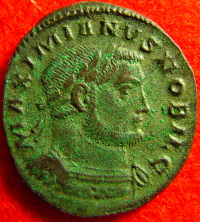From www.etymonline.com I gather the following:
fool (adj.)
{c. 1200, "sinful, wicked; lecherous" (a fool woman (c. 1300) was "a prostitute"), from fool (n.1).}
and ... fool (n.1)
{early 13c., "silly, stupid, or ignorant person," from Old French fol "madman, insane person; idiot; rogue; jester," also "blacksmith's bellows," also an adjective meaning "mad, insane" (12c., Modern French fou), from Medieval Latin follus (adj.) "foolish," from Latin follis "bellows, leather bag," from PIE root *bhel- (2) "to blow, swell."
The sense evolution probably is from Vulgar Latin use of follis in a sense of "windbag, empty-headed person."}
Etymonline is a relible eymological source for me as it has managed to index the most expensive etymological dictionaries, I would not have had access to if it wasn't for this online tool.
I believe though the linguists here are myopic and overeager to resolve the etymology of Latin follis and connect it with a PIE root, overlooking the greek connection, probably influenced by the use of Vulgar Latin as stated just above.
Considering the use of fool is attested very early, Vulgar latin may have been influenced back by the use of the word, not of course necessarily in English, but by the use of the "sinful, wicked; lecherous" meaning of the word in other languages of the time.
Linguists simply cannot overlook the Greek use of word, especially when there is no sign of evolution, but the word is carried over as identical.
 Φολλίς (follis) in Greek means a thin layer, it most probably of aiolic origin and was later used in Roman and Byzantine times to describe a greenish cheap coin with a silver outer layer, the folla (plural follia). The name carries on well into the 14th century in the form of trifollaro (greek form) trifollaris (latin version). 1 trifollaro = 3 follia.
Φολλίς (follis) in Greek means a thin layer, it most probably of aiolic origin and was later used in Roman and Byzantine times to describe a greenish cheap coin with a silver outer layer, the folla (plural follia). The name carries on well into the 14th century in the form of trifollaro (greek form) trifollaris (latin version). 1 trifollaro = 3 follia.
So usage of this coin surpasses historically even that of a fool woman, the prostitute, which in turn may be derived from folla, meanning "cheap".
To this I will add the alternate PIE root etymology that was proposed and overlooked in favour of the PIE root *bhel- (2) "to blow, swell", and that is from PIE root *dʰolyom (*dʰel- (“be green”)). Green was the colour that these coins often took after some time because of the low quality of silver, so there may well be a meaningfull connection.
The Greek φολίς (flake) wtith 1 "λ", has an unknown etymology, so it may be a simplification of φολλίς, hence the similarity in meaning.
Sources:
https://en.wikipedia.org/wiki/Follis
https://en.wiktionary.org/wiki/folium#Latin
http://www.etymonline.com/index.php?allowed_in_frame=0&search=fool
https://en.wikipedia.org/wiki/Follis#/media/File:Galerius_follis.jpg
fool (adj.)
{c. 1200, "sinful, wicked; lecherous" (a fool woman (c. 1300) was "a prostitute"), from fool (n.1).}
and ... fool (n.1)
{early 13c., "silly, stupid, or ignorant person," from Old French fol "madman, insane person; idiot; rogue; jester," also "blacksmith's bellows," also an adjective meaning "mad, insane" (12c., Modern French fou), from Medieval Latin follus (adj.) "foolish," from Latin follis "bellows, leather bag," from PIE root *bhel- (2) "to blow, swell."
The sense evolution probably is from Vulgar Latin use of follis in a sense of "windbag, empty-headed person."}
Etymonline is a relible eymological source for me as it has managed to index the most expensive etymological dictionaries, I would not have had access to if it wasn't for this online tool.
I believe though the linguists here are myopic and overeager to resolve the etymology of Latin follis and connect it with a PIE root, overlooking the greek connection, probably influenced by the use of Vulgar Latin as stated just above.
Considering the use of fool is attested very early, Vulgar latin may have been influenced back by the use of the word, not of course necessarily in English, but by the use of the "sinful, wicked; lecherous" meaning of the word in other languages of the time.
Linguists simply cannot overlook the Greek use of word, especially when there is no sign of evolution, but the word is carried over as identical.
 Φολλίς (follis) in Greek means a thin layer, it most probably of aiolic origin and was later used in Roman and Byzantine times to describe a greenish cheap coin with a silver outer layer, the folla (plural follia). The name carries on well into the 14th century in the form of trifollaro (greek form) trifollaris (latin version). 1 trifollaro = 3 follia.
Φολλίς (follis) in Greek means a thin layer, it most probably of aiolic origin and was later used in Roman and Byzantine times to describe a greenish cheap coin with a silver outer layer, the folla (plural follia). The name carries on well into the 14th century in the form of trifollaro (greek form) trifollaris (latin version). 1 trifollaro = 3 follia. So usage of this coin surpasses historically even that of a fool woman, the prostitute, which in turn may be derived from folla, meanning "cheap".
To this I will add the alternate PIE root etymology that was proposed and overlooked in favour of the PIE root *bhel- (2) "to blow, swell", and that is from PIE root *dʰolyom (*dʰel- (“be green”)). Green was the colour that these coins often took after some time because of the low quality of silver, so there may well be a meaningfull connection.
The Greek φολίς (flake) wtith 1 "λ", has an unknown etymology, so it may be a simplification of φολλίς, hence the similarity in meaning.
Sources:
https://en.wikipedia.org/wiki/Follis
https://en.wiktionary.org/wiki/folium#Latin
http://www.etymonline.com/index.php?allowed_in_frame=0&search=fool
https://en.wikipedia.org/wiki/Follis#/media/File:Galerius_follis.jpg
No comments:
Post a Comment